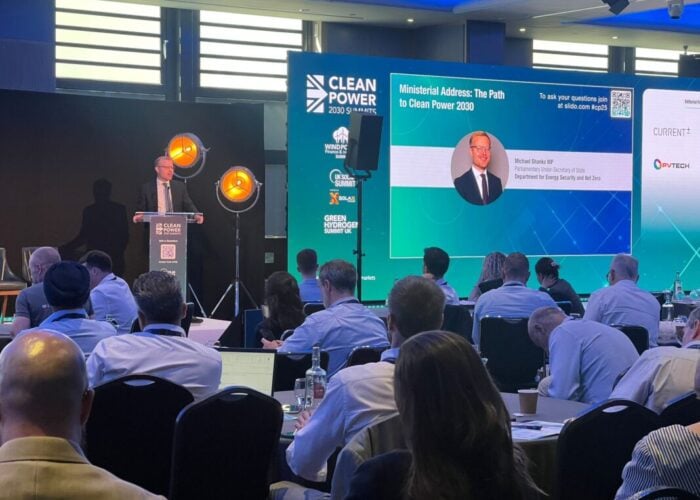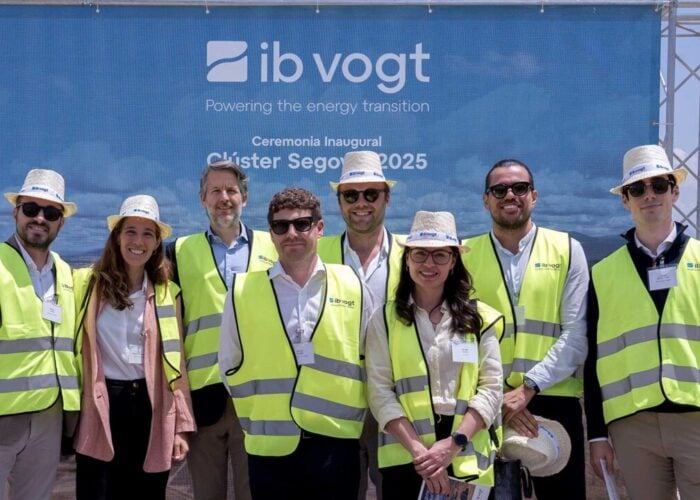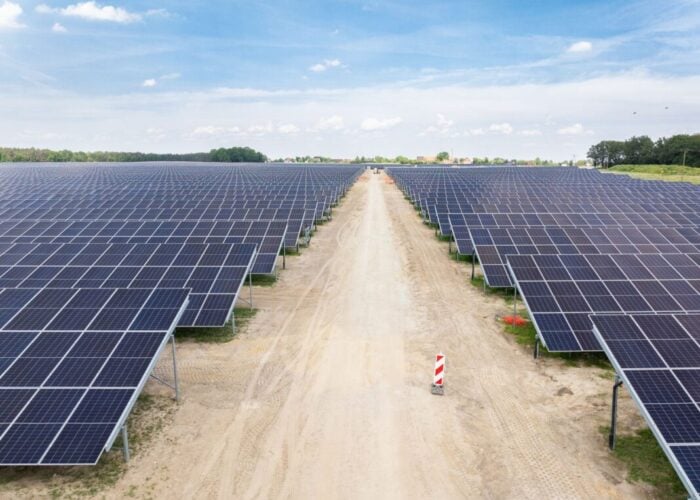The EU and China have announced the terms of the deal to end their long-running solar trade dispute, setting a minimum import price linked to industry price reports.
The initial price level was not released at the time of publication.
Unlock unlimited access for 12 whole months of distinctive global analysis
Photovoltaics International is now included.
- Regular insight and analysis of the industry’s biggest developments
- In-depth interviews with the industry’s leading figures
- Unlimited digital access to the PV Tech Power journal catalogue
- Unlimited digital access to the Photovoltaics International journal catalogue
- Access to more than 1,000 technical papers
- Discounts on Solar Media’s portfolio of events, in-person and virtual
Under the proposals, the minimum import price would fall as industry-wide costs are reduced, ensuring that Europe does not lock itself into higher than necessary prices, as reported by PV Tech last week.
The EU's official documentation says that attempts to index the minimum import price to the cost of raw materials was unsuccessful. Intead it will be tied to the historical final price of completed products.
“No correlation between prices of raw materials and those of final products that would allow for a reliable indexation method could be established in the present case. In order to address an established change in price levels, an alternative method had to be established and price reports by representative and publicly available databases (Bloomberg and pvXchange) specialised in the sector concerned have been used as a reference,” it reads.
The pvXchange price quote at the time of press for a Trina solar 240W polycrystalline panel was €0.54 per Watt.
The EU document also includes the full list of Chinese manufacturers that have signed up to the deal.
The deal was approved by EU member states on Friday, three days ahead of a 6 August deadline from which punitive duties of 47.6% would have been applied to Chinese modules entering the EU.
The dispute saw China open an investigation into EU wine exports. The move raised fears among other Europena industries, particularly German car manufacturers, that an all-out trade war could develop.
Industry group EU ProSun has confirmed that it will take the EU to court over its decision.
“EU member states have been fooled and must not be aware of the devastating consequences of this illegal agreement, which was approved without knowing its content as well as price ceilings and market volumes,” said Milan Nitzschke, president, EU ProSun.
“The outcome of these negotiations with China is contrary to European law. Given the significant damage to EU industry, European solar manufacturers are forced to go to Luxembourg to the General Court of the European Union to argue against this illegal deal,” he added.
Last week questions were raised about the integrity of data used by the European Commission to build its case.
The Alliance for Affordable Solar Energy (AFASE), which campaigned against anti-dumping duties on Chinese imports, sent a letter to the EC questioning the use of information from the consultancy Europressedienst.
The Commission denied allegations of a conflict of interest and said all material was closely vetted and available to the public.
The dispute was the largest by value between the EU and China, with the market worth an estimated €21 billion (US$28 billion) last year alone. The initial agreement will run for two and a half years.







